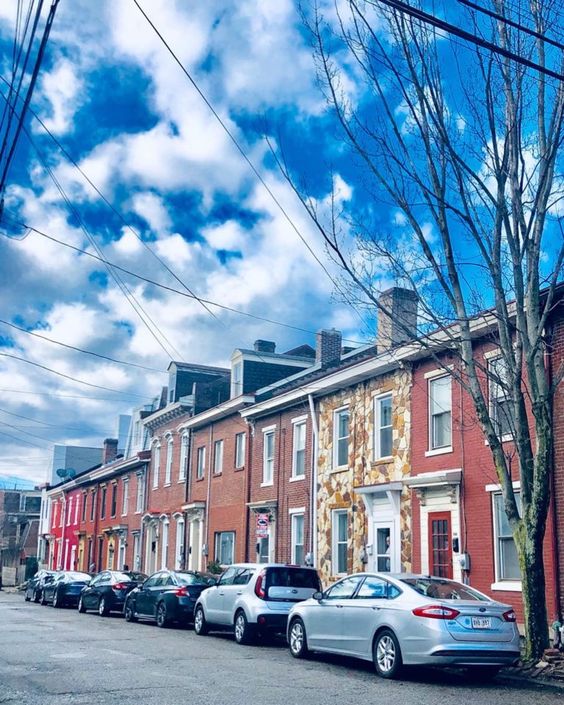Managing short-term rentals in Pittsburgh can be an enriching experience, but it comes with challenges, especially in a city as diverse and unique as Pittsburgh. I’ll share my insights and tips for successfully managing short-term rentals in Pittsburgh, including some personal stories that highlight key lessons I’ve learned along the way.
Pittsburgh’s Short-Term Rental: An Overview
Pittsburgh’s shift from a steel powerhouse to a tech and cultural hub has made it a prime spot for short-term rentals, driving demand from both tourists and business travelers. Popular neighborhoods like Shadyside, Lawrenceville, and the Strip District each offer unique charm. My own experience in Lawrenceville, with its artsy vibe and trendy spots, showed me that in Pittsburgh, location is key to success in short-term rentals.

Setting Up a Successful Short-Term Rental in Pittsburgh
1. Property Selection and Preparation
Choosing the right property is the cornerstone of success in managing short-term rentals in Pittsburgh. In this city, location is key, but so is the character of the property itself. You want a space that feels both homey and unique, something that stands out among the competition.
- When I purchased my second property for short-term rentals in Pittsburgh, I was drawn to a quirky old house in the South Side, full of character but in desperate need of a facelift. After months of renovation, I turned it into a modern retreat while preserving its original charm. The effort paid off, as guests frequently mention how much they love the blend of old and new. If you’re setting up a short-term rental in Pittsburgh, don’t be afraid to invest in a property that needs a little TLC—the right renovations can make it a standout listing.
2. Navigating Local Regulations
Pittsburgh, like many cities, has specific rules governing short-term rentals. Understanding these regulations is crucial to avoid potential issues. From zoning laws to occupancy taxes, staying compliant is essential when managing short-term rentals in Pittsburgh.
- I remember a close call with my first property when I realized I hadn’t filed the necessary paperwork for the local occupancy tax. It was a stressful situation, but it underscored the importance of doing your homework. Pittsburgh’s laws regarding short-term rentals are constantly evolving, so I make it a point to stay updated. I recommend regularly checking the city’s website or consulting with a local attorney who specializes in real estate to ensure your short-term rental in Pittsburgh is fully compliant.

Marketing Your Short-Term Rental in Pittsburgh
1. Crafting an Irresistible Listing
When marketing short-term rentals in Pittsburgh, your listing is crucial as it forms the first impression for potential guests. To stand out, emphasize what makes your property unique with a well-crafted description and high-quality photos. For example, in my South Side property, showcasing the rooftop deck with views of the Pittsburgh skyline significantly boosted bookings. Highlight key features like proximity to nightlife or a cozy retreat, and tailor your listing to your target audience to succeed in Pittsburgh’s competitive short-term rental market.
2. Utilizing Multiple Platforms
Expanding your reach beyond just Airbnb is essential for short-term rentals in Pittsburgh. Listing on platforms like Vrbo and Booking.com can increase your occupancy rates, as each platform attracts different types of travelers—Vrbo often appeals to families, while Booking.com is popular with international guests. By diversifying where I listed my Pittsburgh properties, I managed to fill vacancies that might have otherwise gone unbooked, maximizing my bookings and reaching a broader audience.
3. Leveraging Social Media and Local Networks
Social media can be a powerful tool for marketing short-term rentals in Pittsburgh. Platforms like Instagram and Facebook allow you to showcase your property’s best features, engage with potential guests, and build a brand around your rental business.
- I started an Instagram account for my properties, where I regularly post photos of the spaces as well as local Pittsburgh events and attractions. Over time, I’ve built a following that includes past guests, local influencers, and potential renters. I also make a point to connect with local businesses and tourism boards, which has led to some great partnerships and even more bookings. Leveraging these networks is key to maximizing visibility for your short-term rentals in Pittsburgh.
Day-to-Day Short-Term Management Tips for Pittsburgh Rentals
1. Guest Communication and Experience
Effective communication is crucial to the success of short-term rentals in Pittsburgh. From the moment a guest books until they check out, clear and prompt communication can make all the difference in their experience.
- I’ve found that setting clear expectations from the start helps prevent most issues. For instance, I always send a detailed welcome message with check-in instructions, house rules, and local recommendations. During their stay, I check in occasionally via message to ensure everything is going smoothly. This attention to detail is often reflected in positive reviews and repeat bookings, which are vital for maintaining a strong reputation in Pittsburgh’s short-term rental market.
2. Handling Maintenance and Housekeeping
Keeping your property in top condition is non-negotiable in the short-term rental business. Regular maintenance and thorough cleaning are crucial for ensuring a consistent guest experience, especially when managing short-term rentals in Pittsburgh’s varying climate.
- I once had a guest mention a minor leak in the bathroom sink during their stay. Thanks to a strong relationship with my handyman, I was able to have it fixed the same day. That quick response turned what could have been a negative review into a glowing one. Building a reliable network of service providers—cleaners, handymen, electricians—is one of the smartest investments you can make for short-term rentals in Pittsburgh.
3. Managing Finances and Bookkeeping
Running a short-term rental business in Pittsburgh means keeping a close eye on your finances. From tracking income and expenses to setting aside money for taxes, good financial management is essential.
- I use a combination of property management software and spreadsheets to keep everything organized. This system allows me to track bookings, manage expenses, and forecast future income. I also make it a point to set aside a portion of my earnings for unexpected repairs and seasonal slowdowns. This approach has helped me maintain a healthy cash flow, which is crucial for the long-term success of short-term rentals in Pittsburgh.

Overcoming Common Challenges in Pittsburgh’s Short-Term Rental Market
1. Dealing with Difficult Guests
No matter how well you manage your property, you’ll eventually encounter a difficult guest. Whether it’s noise complaints, unrealistic expectations, or damage to your property, it’s important to handle these situations calmly and professionally when managing short-term rentals in Pittsburgh.
- I once had a guest who hosted a loud party that disturbed the neighbors. I addressed the issue directly, reminding them of the house rules and asking them to keep the noise down. While the situation was stressful, it taught me the importance of clear communication and setting boundaries. Since then, I’ve added a clause to my rental agreement that explicitly forbids parties, which has helped prevent similar issues.
2. Staying Competitive in the Market
Pittsburgh’s short-term rental market is competitive, especially in popular neighborhoods. To stay ahead, you need to continually assess and adjust your pricing strategy based on local events, seasons, and competition.
- During the summer months, when Pittsburgh hosts numerous festivals and sporting events, I increase my rates slightly to match the higher demand. Conversely, during the slower winter months, I offer discounts and special promotions to attract guests. This flexible pricing strategy has helped me maintain a steady stream of bookings throughout the year, which is essential for the profitability of short-term rentals in Pittsburgh.

Future Outlook: Scaling and Expanding Your Short-Term Rental Business in Pittsburgh
1. When to Consider Expanding
If you’ve had success with one or two properties, you might be wondering if it’s time to expand your portfolio. There are a few signs that you’re ready to grow, such as consistently high occupancy rates, positive cash flow, and a strong team of service providers.
- When I decided to expand my short-term rentals in Pittsburgh, I looked for properties in neighborhoods that were up-and-coming but still affordable. This approach allowed me to get in early before property values increased, giving me a good return on investment. If you’re considering expanding, do your research on emerging areas and be prepared to act quickly when the right opportunity arises.
2. Building a Team for Growth
As you scale your business, you’ll likely need to delegate tasks that you once handled yourself. This might include hiring a property manager, outsourcing cleaning services, or bringing on a bookkeeper to manage your finances. Building a strong team is key to successfully managing short-term rentals in Pittsburgh as you grow.
- For me, the turning point came when I added my third property. Managing everything on my own became overwhelming, so I hired a part-time property manager to handle guest communication and day-to-day operations. This decision not only freed up my time but also improved the guest experience by ensuring that someone was always available to address issues.
3. Long-Term Goals and Vision
As your business grows, it’s important to have a long-term vision in mind. Are you looking to eventually sell your properties, or do you plan to continue expanding? What role do you want your short-term rental business to play in your overall financial strategy?
- For now, I’m focused on building a portfolio of well-maintained, high-performing short-term rentals in Pittsburgh. My long-term goal is to create a sustainable business that provides a steady stream of income, with the option to scale back or sell when the time is right. Whatever your goals, having a clear vision will help guide your decisions as you move forward.
E L E V A T E Y O U R R A N K
Unlock Your Time, and Maximize Your Earnings
Managing short-term rentals in Pittsburgh can be challenging, but with our property management services, you can say goodbye to the stress of check-ins, check-outs, and other time-consuming tasks. We offer more than just regular cleaning and maintenance, ensuring your property stands out.
If you’re looking to scale your short-term rentals in Pittsburgh,
Rank One Stays offers Full-service Vacation Rental Management tailored to boost your Airbnb rank and maximize your earnings. We showcase your property to millions, optimize your calendar for maximum bookings, and help you achieve greater success in Pittsburgh’s competitive short-term rental market. Whether you’re just starting or looking to expand, I hope the tips and insights I’ve shared from my own experience will help you on your journey. Pittsburgh has a lot to offer, and with the right approach, you can create a rental property that stands out and thrives in this competitive market.
38% More Revenue Than the Market Average
Low Management Fee for Comprehensive Services
Cancel Anytime — Step Away at Any Time, for Any Reason
At Rank One Stays, we’re committed to helping you elevate your short-term rentals in Pittsburgh, unlocking your property’s full potential and ensuring your success in this thriving market.


